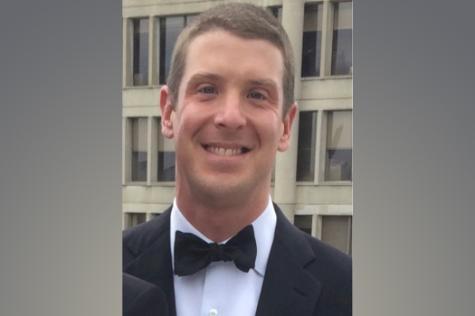
High School Research Internship Opportunity at NYMC Launches a Career in Research
For Michael Boyce, Ph.D., his passion for research took root in the mid-1990s, during a high school internship at New York Medical College (NYMC).

Long before Dr. Boyce, assistant professor of biochemistry at Duke University’s School of Medicine, was leading the Boyce Lab in research aimed at understanding the role of protein glycosylation in mammalian cell signaling and physiology, he got his first experience working in a bona fide research lab at NYMC when he was just 17 years old. “I was interested in science, and wanted to experience what it was like to conduct real research beyond what we were doing as part of my high school curriculum,” he recalls.
Here Dr. Boyce explains how his internship at NYMC came to pass, and how that first experience in a real lab led to his current career in research:
How did you become a NYMC research assistant while still in high school?
When I was a high school student in Westchester County where I grew up, there was a program through the New York Academy of Sciences that placed high school students in a whole range of scientific careers with local institutions and universities for the summer. I signed up for the program and was placed with New York Medical College. It was my first experience in a bona fide research lab; I was working in the lab of professor Lola Margulies, Ph.D., studying a protein called Beta 2 microglobulin—which is involved in the immune system—and this was the first time I had the opportunity to discover new things about biology, as opposed to doing an exercise for a lab in a high school classroom.
How did that experience shape your decision to pursue a career research?
I was already interested in the sciences, but my summer at NYMC definitely made me more committed to research. Although I was just a high school student, I got to experience real research, as opposed to textbook learning wherein someone has already discovered the answers and you are just absorbing information. I remember being so excited because I was doing experiments in which neither I nor anyone else knew what the answer would be ahead of time. We were trying to generate new knowledge!
The summer internship also gave me a taste of the realistic aspects of research. Sometimes experiments fail and you have to be resilient, you have to persevere in the face of unexpected outcomes, you have to be able troubleshoot—but when something works, the end results are all the more rewarding because of it.
I have continued in research ever since. I chose to pursue independent research as an undergrad because I had this positive experience as a high school student, then graduated from Harvard College with a bachelor’s degree in biochemistry, received a Ph.D. in Cell Biology from Harvard Medical School, and completed a postdoctoral fellowship in the Chemistry Department at the University of California, Berkeley.
Can you tell us about the research you are working on in your lab today?
Simply put, all cells from all organisms on Earth attach chains of sugars to their proteins in order to control the proteins’ functions; this is a fundamental aspect of cell biology. These sugar attachment processes, known as glycosylation, impact every normal function a cell, and are often deregulated in diseases like cancer, diabetes and neurodegeneration. We study those processes in mammalian cells.

